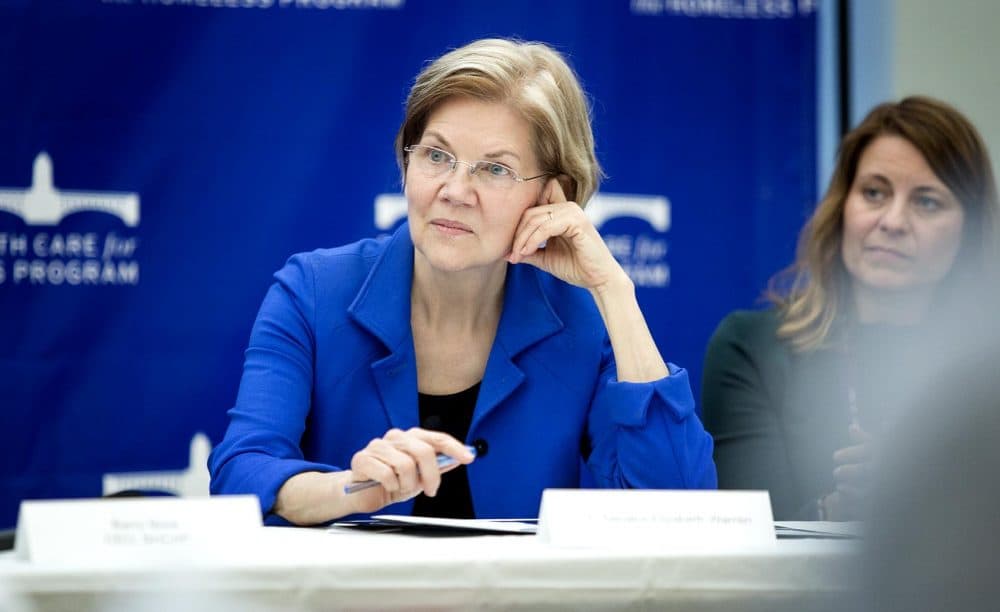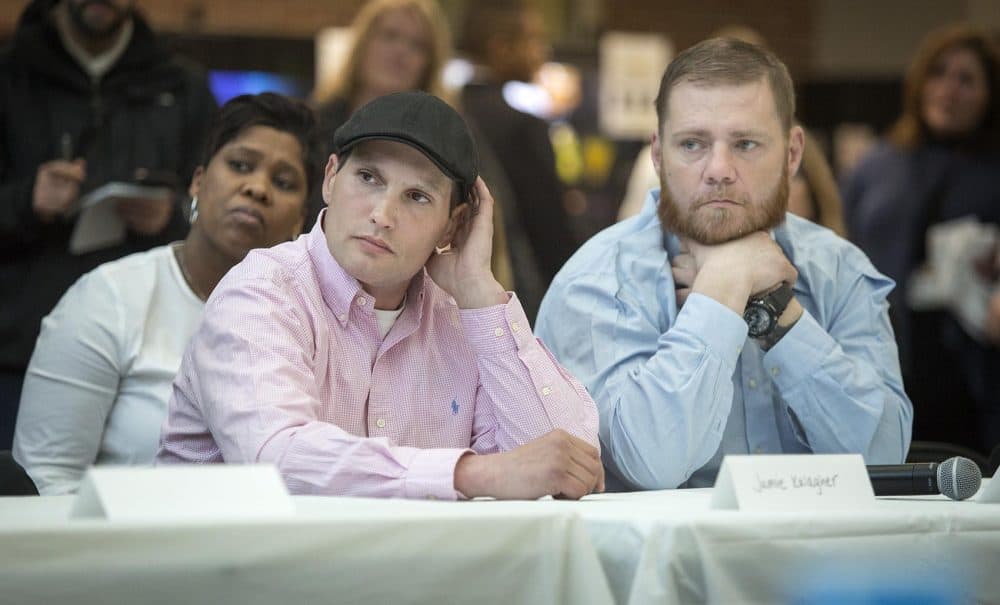Advertisement
Inspired By Federal Response To AIDS Crisis, Sen. Warren Calls For Greater Action On Opioid Addiction
Resume
Massachusetts Sen. Elizabeth Warren is calling for a massive infusion of federal dollars to help fight the opioid epidemic.
On Friday, the senator visited an area of Boston that's considered the epicenter of the opioid crisis in Massachusetts. She walked with Dr. Jessie Gaeta, chief medical officer of the Boston Health Care for the Homeless Program, along so-called "Recovery Road," at the intersection of Massachusetts Avenue and Melnea Cass Boulevard.
"In this building, in the space where we'll be talking today, we have two to five overdoses every single week," Gaeta told Warren. "So it's just rampant."
At that very moment, Gaeta said, her staffers were dealing with an opioid overdose. Eleven people were riding out highs in a room at her clinic where they can be observed by medical professionals.
"If you had more resources, what would you do with them?" Warren asked.
"Lots of things. We need more space, and we need more health care professionals who are willing to do this work and able to do this work," Gaeta answered.
Warren visited to outline her proposed legislation that would provide $100 billion over 10 years for addiction treatment and other programs to go after opioid addiction.
The money would go to areas of the country most affected, based on their overdose death rates.
"Our bill gives them control over these funds," Warren explained while speaking to a crowd in the headquarters of the homeless health care program. "Millions of dollars in funding would flow directly to the hardest hit communities in Massachusetts — places like Worcester, Lawrence, Springfield, Cape Cod and, of course, right here in Boston."
Under the proposed law, funding would also go directly to clinics and nonprofit programs that help people who have opioid use disorders.
Warren said the legislation is modeled after the Ryan White Comprehensive AIDS Resources Emergency (CARE) Act, which provided funding to communities during the HIV/AIDS crisis almost 30 years ago.
"Defeating a public health epidemic like the opioid crisis won't be easy. It will take major resources, local control and the courage to combat the stigma facing every person with addiction," Warren said. "It will take quality treatment and dedicated support. ... We've come together before to save lives. And it's time for us to do so again."
Warren, who plans to co-sponsor the bill with Democratic Maryland Rep. Elijah Cummings, acknowledged it'll be a tough sell to a divided Congress. But she said the proposed law would reduce costs in places like the criminal justice system.
That appeals to Suffolk County Sheriff Steve Tompkins. He said 70 percent of the 1,600 inmates at Suffolk County Jail have alcohol or drug use disorders.
"This is an illness," said Tompkins, who joined Warren for the announcement. "We need to call it what it is. But we also need to put these crucial dollars on the street. We can do what we do inside of the facility, but if don't have partners to hand folks off to once they leave our facility, they're going to relapse, they're going to come back, and unfortunately, some of them will pass away."
"This problem's not just going to go away. You go into a detox, there's no further treatment because there's no money for it."
Jamie Kalagher
Forty-two-year-old Jamie Kalagher, who is originally from Worcester, is a patient at Boston Health Care for the Homeless. He said he hasn't used opioids for three weeks, but he's been addicted to them since he was a teenager.
"Right now, I'm at the point where it's a do or die situation for me," Kalagher reflected.

He was invited to listen to Warren. He said he appreciates her "absolute passion" for the opioid issue. He thinks dramatic steps are needed.
"Safe injection sites. That's going to save lives," Kalagher said. "This problem's not just going to go away. You go into a detox, there's no further treatment because there's no money for it."
Warren said she will support safe injection sites if they are proven to save lives, and her bill might help fund them.
Her planned legislation would also make it easier to hold drug company executives personally responsible if their companies break the law — for example, by lying about how addictive the drugs they're manufacturing are.
This segment aired on April 6, 2018.

